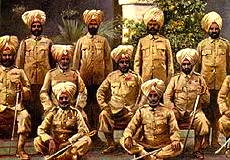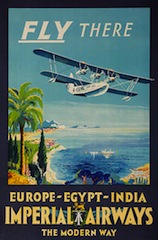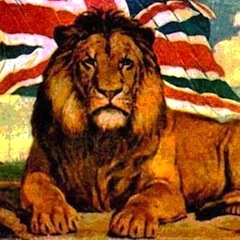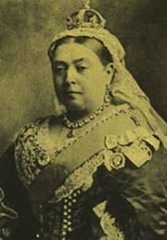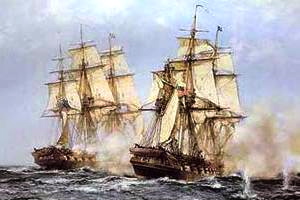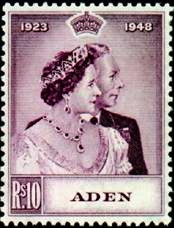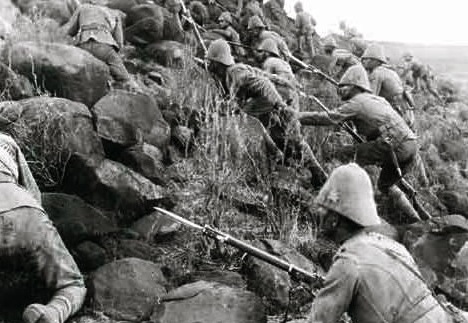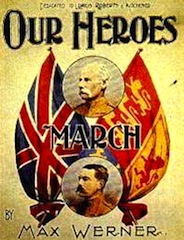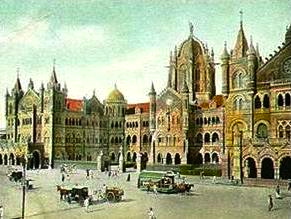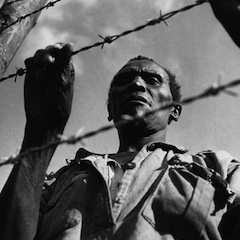|
Dear
Land of Hope, thy hope is crowned.
God make thee mightier yet!
On Sov'ran brows, beloved, renowned,
Once more thy crown is set.
Thine equal laws, by Freedom gained,
Have ruled thee well and long;
By Freedom gained, by Truth maintained,
Thine Empire shall be strong. |
Land
of Hope and Glory,
Mother of the Free,
How shall we extol thee,
Who are born of thee?
Wider still and wider
Shall thy bounds be set;
God, who made thee mighty,
Make thee mightier yet. |
|
—A.C. Benson (1902) |
|
Though no one appears to learn very much from history, the rulers of empires assuredly learn the least. |
|
—James Baldwin (1971) |
GREAT
BRITAIN, at the height of her power, controlled a quarter of the
world's population, a fifth of its dry surface, and enjoyed unchallenged
mastery over its oceans. This course surveys the full scope of British
overseas expansion from the sixteenth century through the twentieth.
The British Empire was one of the greatest trans-cultural phenomena
of the modern world and thus the scope of our study will be accordingly wide.
We will move back and forth between the history of imperial Britain
and her many overseas possessions as we encounter narratives of
conquest, settlement, collaboration, resistance, and technological
and cultural exchange in the furthest reaches of British influence
in Asia, Africa, the Americas, the Caribbean, and the Pacific.
The study of the British Empire is an ambitious undertaking. It
is a vast and problematic subject and requires from the student
of history a good measure of intellectual curiosity, open-mindedness,
and a willingness to venture into unfamiliar territory and encounter
new historical problems and interpretations. We must always be attentive
to the traditions of interpretation and meaning that have characterized
the study of the British Empire at different times and mindful of
what these have to tell us about the imperial experience. As the
historian Richard Drayton reminds us, when we speak of "the British
Empire," we are not referring to one single entity with a continuous
history. Rather we are often speaking of many histories that overlap
in time and space and are part of something that is neither British
nor indeed an empire in the truest sense.
Readings for this course will combine historical scholarship with
literature, documents, and music from different periods and
places. Students are encouraged to
view all of these sources as historical texts and to consider broader
questions about the nature of imperialism, economic interdependence,
"globalization," culture, race, gender, "progress," and modernity.
Through the critical study of history, we encounter ourselves, and
the world in which we live, in new and interesting ways.
This is a 300-level course generally reserved for juniors and seniors.
There are no prerequisites. Students from other disciplines are welcome.
This course counts as an elective in the international affairs major,
the Middle East and North African studies minor, and the ethnic studies minor.
HIST 328 also satisfies the following three categories for General
Education: (1) Historical Perspectives, (2) Global Perspectives, and
(3) Culture, Power, Identity.
|


